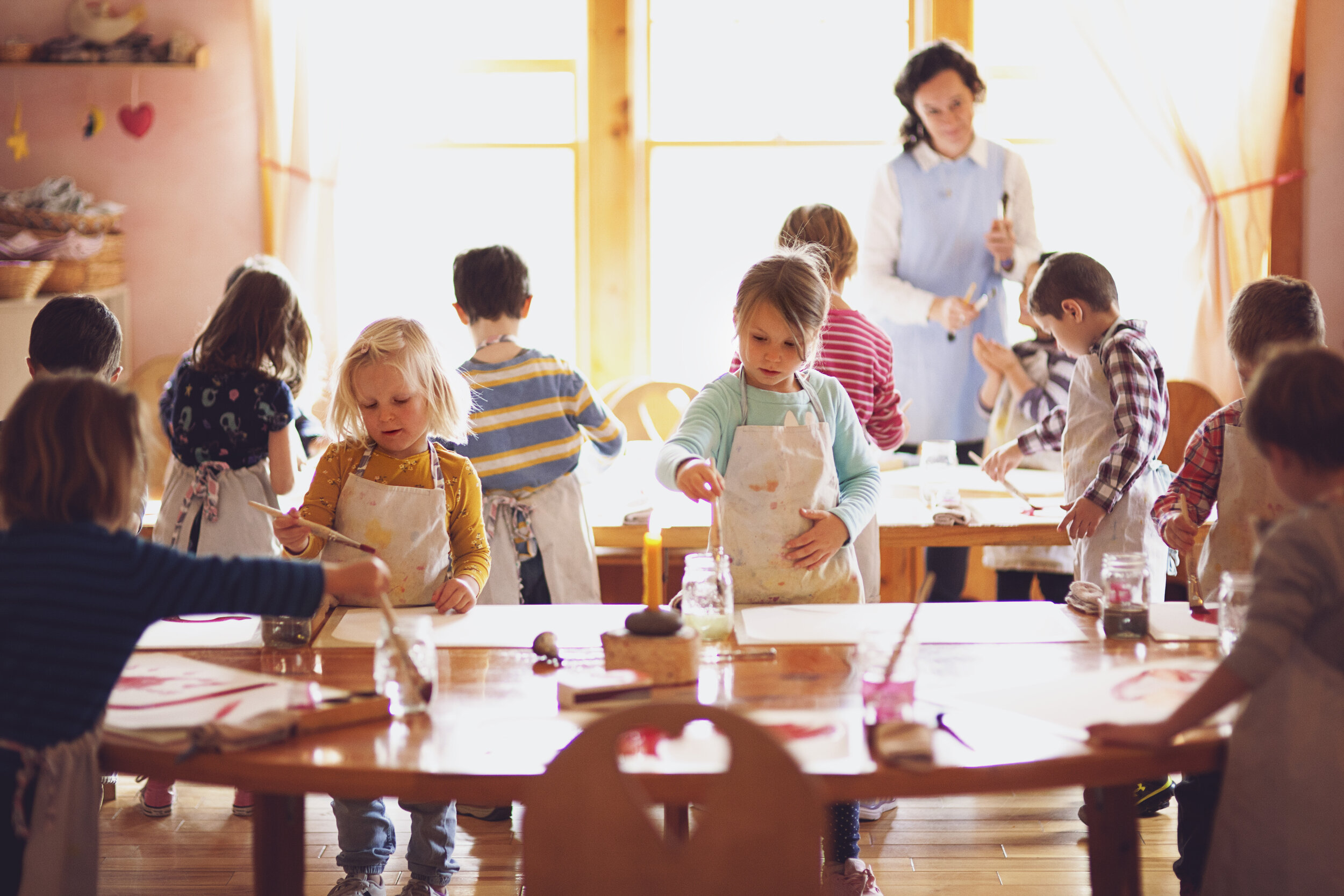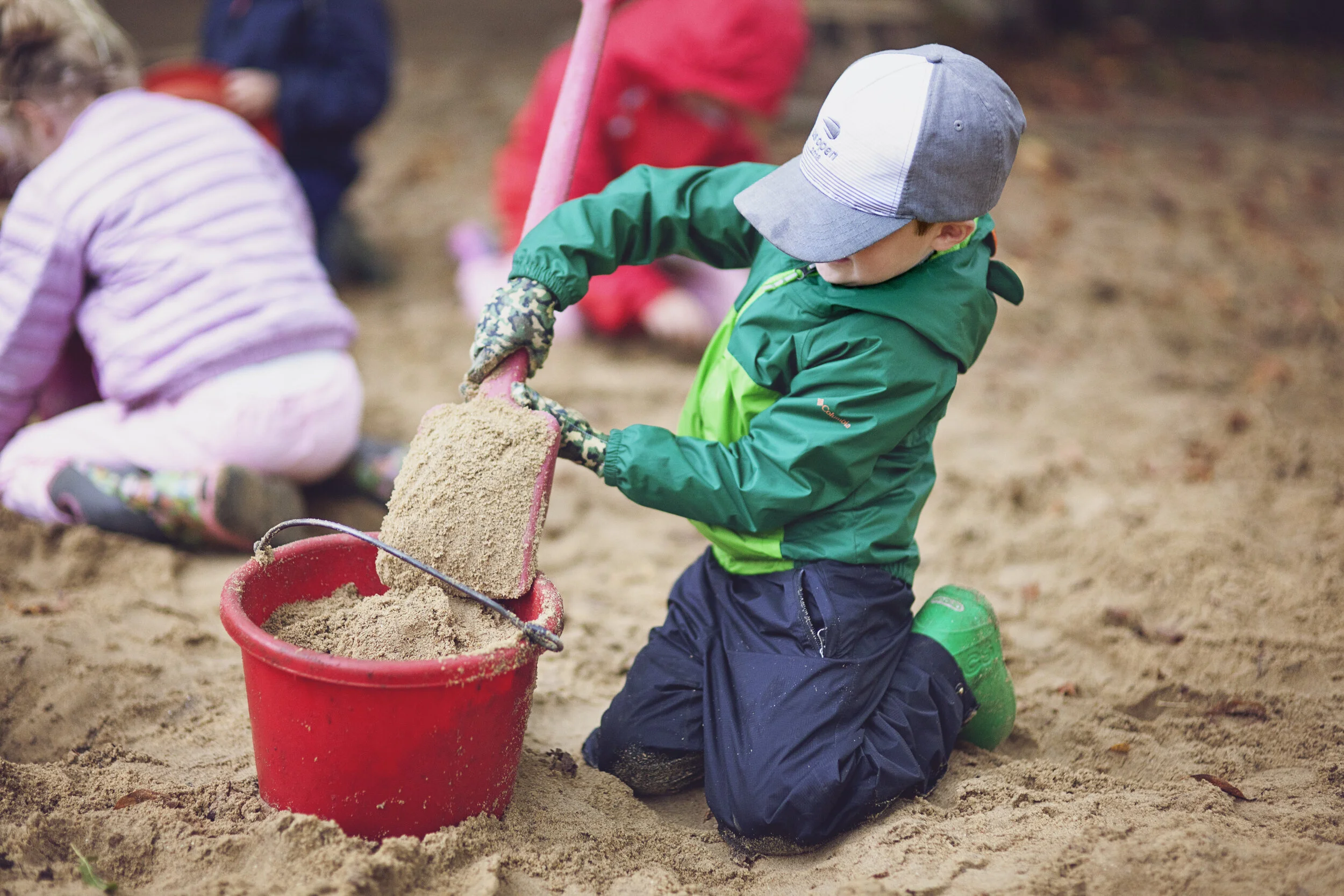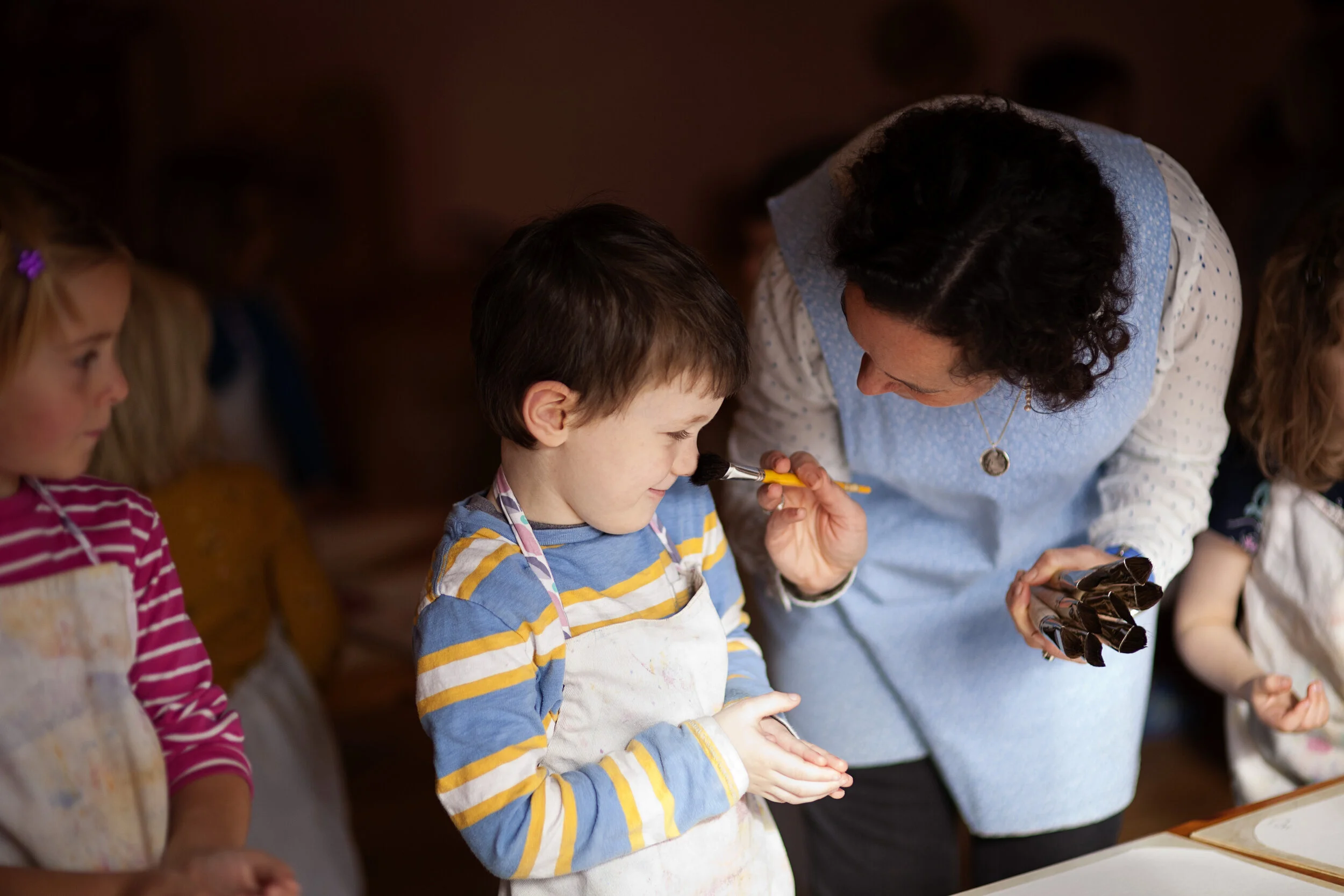Waldorf Early Childhood Program
The warmth and simplicity of our Waldorf Early Childhood classrooms provide a magical place for children to learn and grow. We offer a joyful, nurturing experience for young children—they learn through open-ended, imaginative play, practical skills, and healthy movement in nature.
The daily classroom rhythm includes a balance of active and quiet time that allows each child to thrive. Each day’s activities unfold in the same predictable order, with transitions supported by a short verse or song. Consistency and routine contribute to the child’s healthy development and overall sense of security.
Preschool/Pre-k: For children who are 2.9 years old by September 1. Classes are offered for three, four, or five mornings per week from 8:00 a.m. - 12:00 noon. Aftercare is available until 3:00 or 5:00 p.m.
Kindergarten: For children who are 5 years old by June 1 (before the September in which they begin). Kindergartners attend Monday - Friday from 8:00 a.m. –12:00 noon. Aftercare is available until 3:00 or 5:00 p.m.
Learn more about the Vermont Act 166 subsidy for 3, 4, and 5-year olds here and at Vermont eligibility and enrollment and about our tuition adjustment program (for eligible families of preschool - grade 8 students).
UVWS is also enrolled in the Vermont subsidy program administered through the Bright Futures STARS program. This is an income-based program that provides subsidies to qualifying Vermont families who wish to enroll their children in a STARS accredited program. For more information, visit the Bright Futures website: brightfutures.dcf.state.vt.us
Finding Meaning in Practical Work
An important task for young children is learning how to use their bodies in a balanced and competent way. Meaningful work alongside caring adults helps children develop coordination and sensory learning—essential for later academic learning.
Practical activities and tasks like gardening, cleaning, and cooking help lay the foundation for formal learning in reading, math, and science in the grade school. These activities promote sequencing, hand-eye coordination, eye-tracking, and number sense as children measure, count, and classify in their work and play.
Our teachers guide and include the children in everyday tasks which bring them joy and a sense of accomplishment. Our students knead dough, rake leaves, set tables, and sew. They also help prepare nutritious food that they eat and share together.
This purposeful, focused work will strengthen their intellectual development when they are older. These activities lay the foundations for self-discipline, perseverance, and critical thinking, all necessary later in formal learning of reading, math and science.
“Your teachers have wonderful interactions with the children, and your program scored the highest I have ever scored on that item out of all the programs I have observed in almost a year. Outstanding!!”
Building Health Through Nature Exploration
Daily experiences in the natural world support healthy development for children on many levels. Our children spend time outdoors in all but the most inclement weather.
Fresh air, sunshine, and outdoor work and play foster robust health and strengthen the child’s relationship to the earth. Nature walks, gardening, running, and climbing all encourage healthy physical, emotional, social and intellectual development.
Social Growth
Guiding children in social awareness is an important element in our early childhood classes. Our teachers actively work to instill classroom values of kindness, acceptance, and respect. The time spent in play, work, and artistic activities provides many opportunities to learn about sharing, including others, and reaching out to help a friend in need.
A basic premise of Waldorf education is that the healthy development of the young child depends on genuine and loving interaction with the people around them. Therefore, our classrooms are media-free.
Nurturing the Imagination
Our teachers nourish the natural curiosity and wonder of childhood in a beautiful, home-like environment, free from distractions. Here children experience creative play. They are inspired by simple toys made from natural materials such as wooden toys and hand-made cloth dolls. Children come to understand the world around them best through open-ended play. Free play can translate into creative thinking later in life. It also helps them develop healthy social interactions with others. Rhymes, verses, and stories provide the building blocks of literacy and numeracy—phonemic awareness and familiarity with numbers.Teachers highlight each season of the year with stories, outdoor activities, and crafts. Children delight in painting, drawing, and beeswax modeling. Artistic activities encourage them to freely explore the wonders of color and form.






